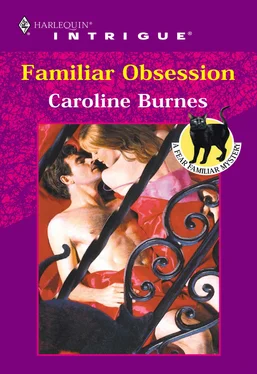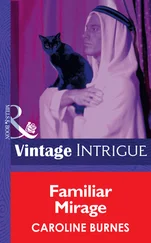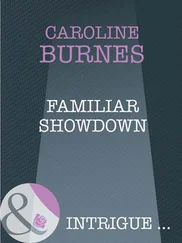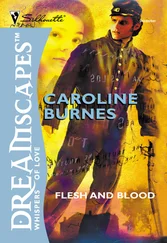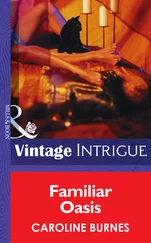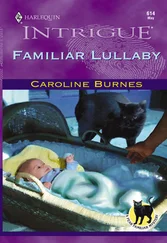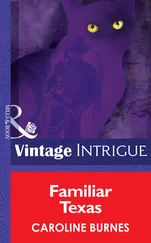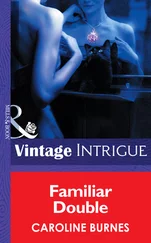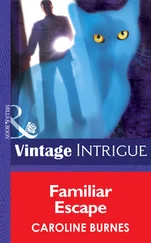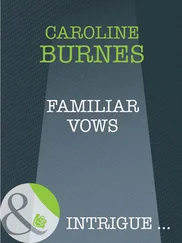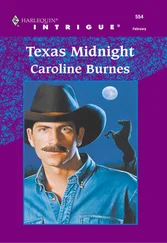She pushed Pascal back with a movement so abrupt she almost made him fall. In an instant, she was on her feet, the elegant black heels she’d purchased just for this event clacking on the Italian-tile floor. In five long strides, she was pulling open the door, the bell jangling madly as she dashed out into the street.
“Duke!” she called out. “Duke!”
Far at the end of the block, a young couple turned and stared at her. Other than that, the street was empty.
She felt a presence at her feet and looked down to find the cat standing beside her. “He was here,” she said aloud. “I don’t care what they say, I saw him. I’m not losing my mind. I’m not.”
A spring breeze teased the skirt of her black dress, and Liza found that she simply couldn’t return to the party. She stood on the street, the empty street, and forced her lungs to draw air in and out. She’d made a fool of herself. This was the one night when her behavior was critical, and she’d run out of her own gallery, her own party, as if she were a madwoman. The terrifying thing was that she was beginning to believe she might be completely insane. Her manager hadn’t said as much, but Pascal had been worried enough about her lately to begin recommending a visit to a psychiatrist.
“Liza?”
Eleanor’s soft voice and her gentle hand drew Liza back from her dark thoughts.
“Come back inside with me,” Eleanor prompted.
“I can’t,” Lisa whispered. “I’m such a fool.”
Eleanor gave her hand a comforting pat. “A fool is a long way from what you are. Now come inside. Everyone’s worried about you. The best thing is to walk back in, give a smile, and then I’ll say you have a migraine. I’ll see that you can escape upstairs.”
Liza’s relief was so deep and quick that even she had to laugh weakly at her pathetic response. “Promise? I just can’t stay there any longer.”
“Migraine is the perfect excuse.” Eleanor hesitated. “Just as long as you and I both agree that we have to get to the bottom of the real problem here. We can lie and say you have a headache, but we have to fix whatever is really wrong.”
Liza started to reply, but her voice broke. She finally turned and looked into her friend’s troubled brown eyes. “God, Eleanor, I don’t know if I can fix it. What if I’m going insane?”
“I doubt that,” Eleanor said stoutly. “I’ve known you for a very long time, Liza. You were never in doubt of who you were or where you wanted to go in life. I think maybe that success has caught you unprepared. It is terrifying to suddenly discover that your dreams have come true. Lots of people have trouble adjusting. That’s what you’re going through—a scary adjustment period.”
Liza clung to the possibility. “Do you really believe that?”
Eleanor put her arm around Liza’s shoulders. “I do. But first things first. Let’s go back inside, smile and show everyone that you’re fine. Then we’ll escape. Okay?”
“Okay.” With Eleanor’s support and the black cat at her heels, Liza steeled herself against the trauma of reentering the gallery. She met the expectant faces of her guests with a smile.
“I’m so sorry,” she said. “My head.” She reached up to touch her temple, aware of the black humor associated with such a gesture. To children, such a gesture meant someone was “touched in the head.”
“It’s a migraine,” Eleanor said. “Liza used to have them in college. Blinding pain, you know. The terrible, terrible stress of being so talented and being the center of attention.” She said the last lightly.
“Yes, sudden success can be traumatizing,” Pascal Krantz added as he came to Liza’s other side. “I should have expected this. Liza is so shy and retiring. All of this attention, why it’s just too much!”
“Yes,” Liza agreed. She gave Pascal’s arm a squeeze. He’d picked up perfectly on Eleanor’s cue, and she could see clearly that soon she’d be able to escape the party, to retire to the privacy of her third-floor apartment. Pascal and Eleanor would make it okay.
“Liza’s sensitive to light,” Eleanor said. “I’m going to put her to bed in a dark room and call the doctor.”
Before anyone could say anything further, Eleanor led Liza to the small elevator at the back of the gallery.
“A million thanks,” Liza whispered.
“Thank me by getting to the bottom of this,” Eleanor answered.
THE ELEVATOR DOOR is about to shut, but a fast black cat can make it. Whew! Thank goodness I dropped that extra pound I gained at Christmas. Another sixteen ounces and I would have been a crushed kitty.
So I’m headed up to the artist’s lair. How exciting. And even better, the color is returning to Liza’s face. For a minute there, I thought she might actually have seen a ghost.
What did she see? By the time I got to the street, it was empty. But she saw something. Or she thought she did.
Now as a student of humanoids, I’d say that Liza thought she saw something terrible. She had the look of a person who’s witnessed a tragic accident. A wreck. A fire. A kidnapping. Something truly awful.
Yet she ran toward it. Which tells me that her expression and her actions are at odds. There’s a medical expression for such behavior—conflicted. The only analogy I can come up with is a cat who sees a dish of grilled grouper, wants to eat it, then spits at it and runs away. In other words, a very sick kitty. Then again, artists are known for their erratic behavior.
I shall withhold judgment until further investigation, which I’m about to conduct right now. While Eleanor puts our little painter to bed, I’m going to inspect her digs.
MIKE DAVIS RAN HIS FINGERS through his hair. He needed a haircut in the worst kind of way. And he missed his cowboy hat. At the thought, he felt an odd homesickness. Funny, when he’d first taken the job at Gabe and Rachel Welch’s ranch, the Circle C, he’d never anticipated that he’d come to call the ten-thousand-acre spread home.
It was a home of harsh realities, in weather and in the heart. For the past five years, he’d worked every fence line, herded the cattle, birthed the calves and trained the horses. It had become home.
And now he was over a thousand miles away, in the spring humidity of New Orleans, Louisiana, wandering the streets like a…what? A ghost? A man without a home or identity?
Mike glanced in the mirror. He’d grown accustomed to seeing the reflection of his features, though truthfully, for the past five years, he’d hardly had time to stop and look at himself. Looks didn’t matter much on a cattle ranch. Not for a man, a cow or a horse. It was a life where skill and talent counted for everything. Good looks—and Mike had been told by more than a few cowgirls that he had some nice features—were just an extra blessing.
But he might as well have been the phantom of the opera or the hunchback of Notre Dame, based on Liza Hawkins’s reaction to him. He terrified her. And if it wasn’t because of his looks, then it had to be because of his actions.
He turned away from the mirror with a growing sense of frustration and took long strides across the room to the painting he’d just purchased. He’d saved most of his wages for the past five years—plus, he had uncanny luck at poker—he could afford to live well, for a while. Liza Hawkins’s painting had been irresistible. It was a watercolor so filled with afternoon light that he felt as if he’d lived the moment. He knew exactly the shade of terra-cotta that would show through in the old brick dampened by rain and then dazzled by sunlight. He knew the crooked texture of the bricks used as roadbed and the intense green of the shrubs. He knew that scene. But how did he know it?
More importantly, how did he know the artist, Liza Hawkins?
Читать дальше
